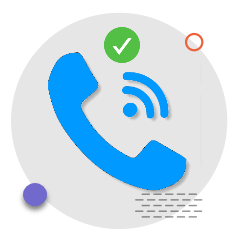
Making information accessible isn’t just about compliance with laws and standards—it’s about ensuring that people of all abilities can participate equally in work, education, and everyday life. PDFs are one of the most common document formats, but they can be challenging to make accessible. Traditional manual remediation is slow, technical, and often intimidating for people who don’t have a background in accessibility.
Equidox was built to change that. The company’s tools were designed by accessibility experts who understand the frustrations of traditional workflows. They recognized that while human judgment and expertise are always essential, much of the work in PDF remediation is repetitive. By combining that human knowledge with automation, Equidox makes accessibility faster, easier, and more approachable for everyone.
Guided Automation in Equidox Software
Equidox Software is a cloud-based platform for remediating PDFs. At its core, it blends human oversight with intelligent automation. The goal is to help people focus their energy on decisions that require judgment—like writing meaningful alt text or checking reading order—while automation handles the repetitive tasks.
Some of the automation features include:
-
- Smart Zone Detector: Automatically identifies text, headings, images, and links on each page. Instead of manually navigating a complicated tag tree, users can fine-tune the layout with an easy-to-use slider.
- Smart Table Detector: Tables are notoriously difficult to remediate manually. Equidox detects rows, columns, and merged cells, then creates a logical structure that can be adjusted in seconds.
- Smart List Detector: Nested lists that would normally take a long time to rebuild can be recognized and structured automatically with a few clicks.
- Page Match: When working with multi-page documents, Equidox can compare new pages to those that have already been remediated and apply consistent structures.
- Zone Transfer: Allows users to copy tagging structures from one page to another, streamlining remediation of documents with repeated layouts and reducing the need to build zones manually.
These tools don’t replace the person remediating the document—they work alongside them, cutting out hours of repetitive tagging so that experts and beginners alike can focus on getting the details right.
Equidox AI for High-Volume Documents
For organizations that produce large numbers of templated PDFs—like statements, invoices, or benefit letters—Equidox offers Equidox AI. This solution automates remediation almost entirely by applying trained models to document layouts.
The automation here was built and tested by accessibility specialists, not just software engineers. Human experts reviewed how screen readers interact with these documents and used that knowledge to train AI models. As a result, the system doesn’t just “tag” elements—it structures them in a way that makes sense to real people using assistive technology.
Key aspects include:
- High-Speed Processing: Hundreds or thousands of documents can be remediated in minutes, making it practical to handle scale that would be impossible manually.
- Human-Guided Training: The AI is not a black box. Models are developed with human-in-the-loop validation to ensure accuracy and reliability.
- Flexible Deployment: Organizations can use Equidox AI through a secure cloud service, on-premises installations, or integrated APIs, depending on their needs.
By focusing on structured, repeatable documents, Equidox AI ensures that accessibility doesn’t become a bottleneck for critical communications.
Why Automation Matters
Automation in accessibility is about more than speed. It’s about removing barriers for both document creators and the people who need accessible content.
- Efficiency: Hours of repetitive tagging work can be reduced to minutes, freeing up human experts for tasks that require thought and care.
- Consistency: Automated features ensure that headings, lists, and tables are structured correctly.
- Scalability: Organizations no longer need to choose between accessibility and practicality when faced with thousands of files.
- Accessibility for Everyone: By lowering the learning curve, automation allows non-specialists—communications teams, HR staff, educators—to make their content accessible without needing to be technical experts.
At the same time, Equidox emphasizes that automation is most powerful when guided by people. Tools provide the structure, but humans provide the context and meaning.
Standards That Guide Accessibility
Equidox automation is designed to help organizations meet international accessibility standards, including:
- WCAG (Web Content Accessibility Guidelines): The global benchmark for digital accessibility.
- Section 508 (U.S.): Federal requirements that ensure government documents are accessible to people with disabilities.
- Global Standards (EAA, EN 301 549, AODA, DDA, and others): International accessibility laws and regulations that vary by region, but most align with WCAG as the foundation for compliance.
Automation ensures that the technical foundations—like tags and structure—align with these standards, while people contribute the contextual elements that no software can guess, such as meaningful alt text and reading order.
This dual approach—automation plus human judgment—ensures not only compliance, but also a usable, inclusive experience for people who rely on screen readers and other assistive technologies.
Designed by Accessibility Experts, for Real People
What sets Equidox apart is that its features weren’t designed in isolation—they came from the lived experience of accessibility professionals. These experts knew the pain points: confusing tag trees, tedious table markup, and the steep learning curve of traditional remediation tools.
By listening to accessibility practitioners and everyday document creators, Equidox built automation that feels intuitive. The goal wasn’t to eliminate human involvement, but to empower people to succeed quickly, whether they’re new to accessibility or experienced specialists.
Training and support reflect the same philosophy:
- Instructor-Led Training: Live sessions help teams get comfortable quickly.
- Self-Paced Resources: Guides, videos, and release notes support learning at any speed.
- Responsive Support: U.S.-based experts provide practical help, not just technical fixes.
Real-World Impact: What Clients Are Saying
- California Department of Health Services
“Equidox is faster, easier to learn and use, and provides a more comprehensive training program. Staff were quickly up to speed and remediating PDFs faster than ever before… The artificial intelligence-driven table editor allows them to remediate tables in seconds rather than hours.” - Teneo Linguistics Company
“Equidox is quick to learn, easy to teach other people… a big plus for me because we had projects already rolling in and it was easy to catch on… we figured it out within a few days. Equidox allows us to process increased quantity at the same quality.” - Clerk’s Office (Oakland Park)
“Adobe was a nightmare… staff loves using Equidox… it’s so much faster than Adobe… training was great and easy to learn. When we need it, the support is responsive… a real person helping us. Our return on investment was recouped very quickly. Equidox is well worth the money.” - Hill College (Texas)
“By using Equidox, I reduced the amount of time spent on remediating a PDF by 70%. This is going on my third year using Equidox, and I will continue to use this valuable tool to support our digital accessibility initiative.” - Rick Hansen Foundation
“The software allows me to quickly highlight and tag elements. Much of the work is automated, and it’s very straightforward to learn and use… I like that their support team is there if I need them and that I didn’t need experience remediating PDFs at all to use the software.”
These stories show that automation doesn’t just make life easier for staff—it ensures that real people with disabilities gain faster, more consistent access to the information they need.
Choosing the Right Approach
Equidox offers two main approaches:
- Equidox Software is best for varied or unique documents where human input is essential. Automation speeds up the tagging process, but people still make the final calls.
- Equidox AI is designed for structured, high-volume workflows where automation can take on almost all of the work.
Many organizations use both, depending on the type of documents they handle.
The Bigger Picture
PDF accessibility is often seen as a compliance obligation. But at its heart, it’s about inclusion—ensuring that people using assistive technology can access information independently. Automation helps make that possible on a scale that matches today’s information demands.
By combining human expertise with smart automation, Equidox reduces the barriers that make PDF accessibility difficult. It allows organizations to keep pace with compliance requirements, but more importantly, it helps them create a digital environment where everyone has equal access to information.
In short: Automation doesn’t replace humans in accessibility—it amplifies their impact. With Equidox, the repetitive parts of remediation are handled by tools designed by experts, so people can focus on what really matters: making content clear, accurate, and usable for everyone.
Tammy Albee
Tammy Albee | Director of Marketing | Equidox Tammy joined Equidox after four years of experience working at the National Federation of the Blind. She firmly maintains that accessibility is about reaching everyone, regardless of ability, and boosting your market share in the process. "Nobody should be barred from accessing information. It's what drives our modern society."

Let’s talk!
Speak with an expert to learn how Equidox solutions make PDF accessibility easy.
